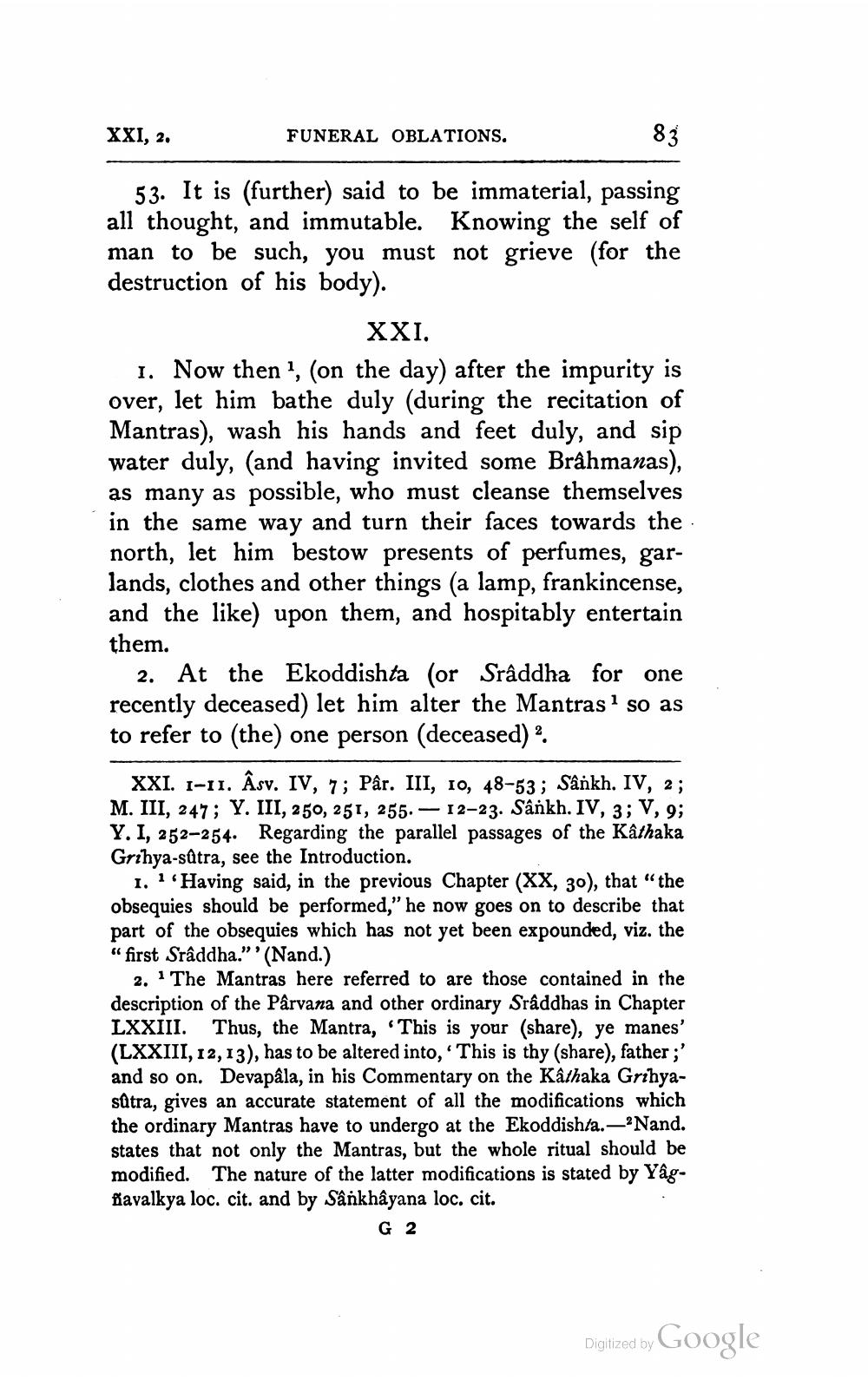________________
XXI, 2.
FUNERAL OBLATIONS.
83
53. It is (further) said to be immaterial, passing all thought, and immutable. Knowing the self of man to be such, you must not grieve (for the destruction of his body).
XXI. 1. Now then , (on the day) after the impurity is over, let him bathe duly (during the recitation of Mantras), wash his hands and feet duly, and sip water duly, (and having invited some Brahmanas), as many as possible, who must cleanse themselves in the same way and turn their faces towards the north, let him bestow presents of perfumes, garlands, clothes and other things (a lamp, frankincense, and the like) upon them, and hospitably entertain them.
2. At the Ekoddishta (or Sraddha for one recently deceased) let him alter the Mantras ? so as to refer to (the) one person (deceased) 2.
XXI. 1-11. Âsv. IV, 7; Pâr. III, 10, 48-53; Sânkh. IV, 2; M. III, 247; Y. III, 250, 251, 255. — 12-23. Sankh. IV, 3; V, 9; Y. I, 252-254. Regarding the parallel passages of the Kathaka Grihya-sûtra, see the Introduction.
1. 1.Having said, in the previous Chapter (XX, 30), that "the obsequies should be performed," he now goes on to describe that part of the obsequies which has not yet been expounded, viz. the “first Sraddha.". (Nand.)
2. 1 The Mantras here referred to are those contained in the description of the Pârvana and other ordinary Sraddhas in Chapter LXXIII. Thus, the Mantra, 'This is your (share), ye manes' (LXXIII, 12, 13), has to be altered into, 'This is thy (share), father;' and so on. Devapala, in his Commentary on the Kathaka Grihyasûtra, gives an accurate statement of all the modifications which the ordinary Mantras have to undergo at the Ekoddishta.— Nand. states that not only the Mantras, but the whole ritual should be modified. The nature of the latter modifications is stated by Yágfiavalkya loc. cit. and by Sânkhâyana loc. cit.
G 2
Digitized by Google




